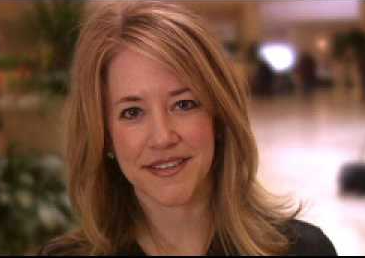The free Complete Beekeeping Short Course is available at uaex.uada.edu/bee-class and on the Cooperative Extension Service’s YouTube page. Jon Zawislak, extension apiculture specialist for the University of Arkansas System Division of Agriculture and Eastern Apicultural Society-certified Master Beekeeper, teaches the course, which is divided into multiple topics. The series covers the structure and function of each component of a modern bee hive, basic tools and equipment needed and information about safe practices and protective clothing. Zawislak also covers basic honey bee biology and behavior, honey production and harvesting and honey bee health, including how to recognize and treat honey bee diseases, parasites and hive pests.
Zawislak said honey bee biology and behavior is “often neglected in training beekeepers.”
“Some books and classes focus mainly on what a beekeeper should be doing at different times of the year, without a lot of explanation on what the bees will be trying to do,” he said. “Honey bees are fascinating and intelligent living creatures, and they are constantly trying to explore their world and gather resources from it, and they make some very complex decisions as a group. If beekeepers are better able to understand what their bees want, then they can better manage those colonies to help them thrive and be productive.”
The online beekeeping course also includes information about the practice’s challenges. Zawislak said people should expect to spend between $500-$800 to get started, and the work can be physically demanding.
“Expect to spend hot hours inside a bee suit, doing some heavy lifting, and there will always be occasional bee stings when you are least expecting them,” he said.
Zawislak said part of his goal with the beekeeping course is to encourage people who feel they are “prepared to take it on,” and to also “discourage those who may not be ready for this kind of commitment.”
“It’s a little like gardening,” he said. “It takes lots of hard work to do it right, but it’s a labor of love. A homegrown Arkansas tomato will always be superior to one from the grocery store that has been shipped across the country on a truck. The same is true for your own backyard honey. It will always outshine the stuff available to you on a supermarket shelf. And once you’ve tasted fresh honey, you can’t settle for anything less.”
Zawislak started offering in-person beekeeping classes in 2010. He said he received a “very positive response” to these classes, which led to many requests from local beekeeping clubs and county extension agents to offer similar classes in locations around Arkansas.
Amy Cole, extension digital media program manager, said beekeeping content brings many visitors to the Cooperative Extension Service’s website and social media pages.
“The honey bee pages on our website are always very popular, and we are found in Google in the top search results for keywords such as ‘beekeeping’ thanks to relevant and robust content from Dr. Zawislak,” Cole said.
During the COVID-19 pandemic, all in-person classes were suspended. While he continued to offer programs through Zoom and consult with individual beekeepers through email and phone calls, Zawislak said it “became obvious that there was a significant need for this type of course to be widely available and on-demand online.”
“I wanted this course to be available online to anyone, at no cost, to provide people with a solid foundation of knowledge for keeping honey bees,” Zawislak said. “It will benefit beginners before they begin and can be a good refresher course for experienced beekeepers, who may have never taken a formal class.
“It needed to be thorough without being overwhelming,” he said. “There are some great videos available online on specific topics, but not a complete, comprehensive series that is scientifically valid and up to date. That’s the niche we set out to fill.”
The beekeeping course videos became available Sept. 20, and the Southwest Arkansas Beekeepers Association is already planning to use the course material in an upcoming series of classes and workshops.
“The Basic Beekeeping Class that Dr. Zawislak taught in-person over the years was without a doubt the best classroom training available in Arkansas, and we are really excited to see the Cooperative Extension Service offer the course material on-line so that it is available to anyone and everyone at any time,” said Debra Bolding, membership chair for the Southwest Arkansas Beekeepers Association.
Zawislak said he hopes to add more beekeeping content to the Cooperative Extension Service’s YouTube page in the future.
“Anyone who has ever considered keeping bees could benefit from watching this series,” he said. “The industry continues to change, so even experienced beekeepers can tune in to gain a deeper insight into what they are already doing. Once people realize how amazing honey bees really are, they may not be able to resist trying beekeeping.”
For more information and to access the Complete Beekeeping Short Course, visit uaex.uada.edu/bee-class or the Cooperative Extension Service’s YouTube page.
To learn about extension programs in Arkansas, contact your local Cooperative Extension Service agent or visit www.uaex.uada.edu. Follow us on Twitter and Instagram at @AR_Extension. To learn more about Division of Agriculture research, visit the Arkansas Agricultural Experiment Station website: https://aaes.uada.edu. Follow on Twitter at @ArkAgResearch. To learn more about the Division of Agriculture, visit https://uada.edu/. Follow us on Twitter at @AgInArk.
































